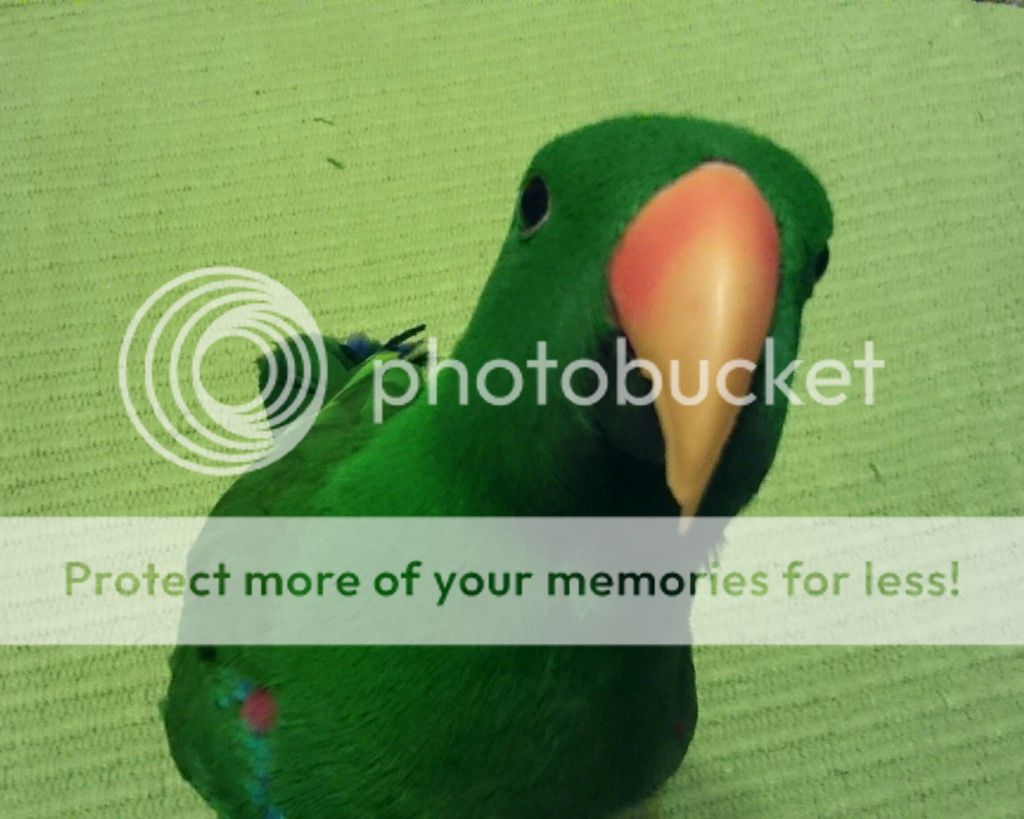Violet_Diva
Member
- Aug 30, 2016
- 843
- 19
- Parrots
- Bella (Vosmaeri Eclectus Female) + Dexter (Red Sided Eclectus Male) + Gerry (Vosmaeri Eclectus Male)
Me again... that's right, Dexter didn't want to be left out.
Dexter had a small split at the tip of his beak. I've been watching it thinking that he'd file it down on his textured perches (as I've seen him working on it.) Today I think it looks bigger rather than smaller, so I think I'd better ask the vet to file it down. I'm guessing that if I leave it, it could get worse, so I'll see if I can take him in with Gerry.

Dexter had a small split at the tip of his beak. I've been watching it thinking that he'd file it down on his textured perches (as I've seen him working on it.) Today I think it looks bigger rather than smaller, so I think I'd better ask the vet to file it down. I'm guessing that if I leave it, it could get worse, so I'll see if I can take him in with Gerry.


